Publications
Complete list of publications: http://www.ces.uc.pt/en/ces/pessoas/investigadoras-es/maria-manuela-guilherme/publicacoes
TEODORO, A. & GUILHERME, M. (eds.) (2014) European and Latin American Higher Education between Mirrors: Conceptual framework and policies of equity and social cohesion. Rotterdam: Sense Publishers.
This book aims to deepen the discussion about the goals envisioned, the roles undertaken and constraints found in higher education institutions both in Europe and Latin America in current times. This book addresses the controversies and challenges regarding globalising ideologies, policies, and practices at place. It questions leading concepts, epistemological axioms and sweeping transnational policies which are shaking core principles, traditional routines and local commitments of European and Latin American higher education institutions. It focuses on the motivations and consequences of transnational networking in academic life, on the impacts of the Bologna process, both its vision and implementation in higher education in Europe and its exportation to Latin America. This book also examines the definitions, translations and implications of concepts such as equality and difference, equity and solidarity, governance and citizenship and their signifi cance in organizational, geographical and global contexts of contemporary higher education both in Europe and Latin America.
GUILHERME, M. (2014) ‘Glocal’ Languages and North-South Epistemologies: Plurilingual and Intercultural Relationships. In Teodoro, A. & Guilherme, M. (eds.) European and Latin American Higher Education between Mirrors: Conceptual framework and policies of equity and social cohesion. Rotterdam: Sense Publishers, pp. 55-72.
This chapter builds upon the idea that there have been different knowledge-producing frameworks in the world, profiting from and resisting the unequal relations of power, which correspond to different world and life visions. Science and academia have been reproducing a successful model, one that originated in European history and was formalized during the Enlightenment, and which has since remained unquestioned, and was exported worldwide during colonialism. A scientific model has been imposed through all kinds of evaluation procedures and strengthened by the globalized idea of an “entrepreneurial university” (Barnett, 2011), and the English language has been used as a powerful vehicle to further this idea (Guilherme, 2007). However, since the late 1960s, higher education institutions all over the world have reconsidered the organization of curricula and introduced new content, mainly related to native ethnic groups, or others who had not, until then, been represented in the academic canon. This was a movement that started in the United States with the civil rights movement and intensified there with the impact of affirmative action. This tendency has now become globalized to higher education institutions around the world and the argument for epistemological equity and cognitive justice is now gaining momentum (Santos, 2007a/b). In the meantime, academics, focusing on international research projects, have attempted to translate and negotiate the complexity of meanings for work relations and for interaction principles; however, such practices and remaining difficulties at the grassroots level have not yet been given voice, or the space for critical meta-analysis. ….
GUILHERME, M. & DIETZ, G. (2014) Multi-, Inter- and Trans-culturalities: Complexities of meaning. In J. Beltrán & A. Teodoro (eds.) Educación Superior e inclusión social: Aproximaciones conceptuales y perspectivas internacionales (pp. 79-90). Buenos Aires: Miño y Dávila srl / Miño y Dávila editores sl.
This text undertakes an analysis of three concepts, namely “multiculturalism”, “interculturality” and “the transcultural”. It draws from recently published or othermade public sourcesfrom different academic and cultural traditions and, therefore, it maps different perspectives and uses of these terms. They have lately been made ubiquitous in the academic and social discourse and are often used indiscriminately. In fact, it is impossible to establish fixed and stable lines between them since they form a complex web of meanings that, to some extent, may crisscross each other. However, it is feasible, for the purpose of deeper scientific accurateness, to identify layers and regions of meaning for each of one of them and this is what this article attempts to do, against a backdrop of different types of colonialism, both from the perspective of the colonized and the colonizers, as well as against a north-south metaphor.
http://www.minoydavila.com/media/descargables/978-84-15295-59-4.pdf
GUILHERME, M. & DIETZ, G. (2014). Diferencia en la diversidad: Perspectivas múltiples de complejidades conceptuales multi, inter y trans-culturales. Estudios sobre Culturas Contemporáneas, vol. XX, núm. 40, 2014, pp. 13-36
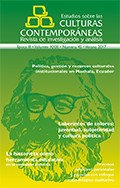 Ofrecemos en este texto un análisis de tres conceptos: “multiculturalismo”, “interculturalidad” y “lo transcultural”. Partiendo de fuentes publicadas de diferentes tradiciones académicas y culturales, se hace un mapeo de las distintas perspectivas y usos de estos términos –términos que se han vuelto omnipresentes en el discurso académico y social, pero que a menudo se usan de forma indiscriminada. De hecho, resulta imposible establecer líneas divisorias fijas y estables entre ellos, dado que conforman una compleja red de significados que, de cierta manera, pueden traslaparse entre sí. Sin embargo, para una adecuación científica más profunda, es factible identificar matices y regiones de significados para cada uno de estos términos, que es precisamente lo que el presente artículo pretende, frente a la persistencia de diferentes tipos de colonialismo, tanto desde la perspectiva del colonizador como de los colonizados, y ante la persistencia de la metáfora del norte y del sur.
Ofrecemos en este texto un análisis de tres conceptos: “multiculturalismo”, “interculturalidad” y “lo transcultural”. Partiendo de fuentes publicadas de diferentes tradiciones académicas y culturales, se hace un mapeo de las distintas perspectivas y usos de estos términos –términos que se han vuelto omnipresentes en el discurso académico y social, pero que a menudo se usan de forma indiscriminada. De hecho, resulta imposible establecer líneas divisorias fijas y estables entre ellos, dado que conforman una compleja red de significados que, de cierta manera, pueden traslaparse entre sí. Sin embargo, para una adecuación científica más profunda, es factible identificar matices y regiones de significados para cada uno de estos términos, que es precisamente lo que el presente artículo pretende, frente a la persistencia de diferentes tipos de colonialismo, tanto desde la perspectiva del colonizador como de los colonizados, y ante la persistencia de la metáfora del norte y del sur.
http://www.redalyc.org/pdf/316/31632785002.pdf
GUILHERME, M. & DIETZ, G. (2015). Difference in Diversity: Multiple perspectives on multi-, inter-, and trans-cultural conceptual complexities. Journal of Multicultural Discourses, 10:1, 1-21
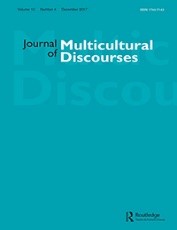 This text undertakes an analysis of three concepts, namely “multiculturalism”, “interculturality” and “the transcultural”, which are scrutinized and discussed in their potential for explaining. They are looked upon from within the wider scope of inequality, difference and diversity as developed understood infrom the perspectives of different north-south conceptual frameworks. The discussion draws from recently published or other made public sources from different academic and cultural traditions and, therefore, it maps different perspectives and uses of these terms. They have lately been made ubiquitous in the academic and social discourse and are often used indiscriminately. In fact, it is impossible to establish fixed and stable lines between them since they form a complex web of meanings that, to some extent, may crisscross each other. However, it is feasible, for the purpose of deeper scientific accurateness, to identify layers and regions of meaning for each of one of them and this is what this article attempts to do, against a backdrop of different types of colonialism, both from the perspective of the colonized and the colonizers, as well as against a backdrop of a north/south-south/north metaphor. The conceptual discussion on which this article relies is based upon two large projects in Latin America involving various types of higher education institutions.
This text undertakes an analysis of three concepts, namely “multiculturalism”, “interculturality” and “the transcultural”, which are scrutinized and discussed in their potential for explaining. They are looked upon from within the wider scope of inequality, difference and diversity as developed understood infrom the perspectives of different north-south conceptual frameworks. The discussion draws from recently published or other made public sources from different academic and cultural traditions and, therefore, it maps different perspectives and uses of these terms. They have lately been made ubiquitous in the academic and social discourse and are often used indiscriminately. In fact, it is impossible to establish fixed and stable lines between them since they form a complex web of meanings that, to some extent, may crisscross each other. However, it is feasible, for the purpose of deeper scientific accurateness, to identify layers and regions of meaning for each of one of them and this is what this article attempts to do, against a backdrop of different types of colonialism, both from the perspective of the colonized and the colonizers, as well as against a backdrop of a north/south-south/north metaphor. The conceptual discussion on which this article relies is based upon two large projects in Latin America involving various types of higher education institutions.
https://www.researchgate.net/publication/273905996_Difference_in_diversity_multiple_perspectives
_on_multicultural_intercultural_and_transcultural_conceptual_complexities
GUILHERME, M. (2015) Global Learning. In J. M. Bennett (Ed.) Encyclopaedia of Intercultural Competence (pp.361-363). Thousand Oaks, Ca.: Sage
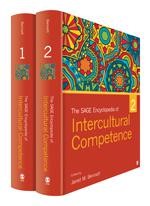 Global Learning is one of the terms which address the contemporary expansion, beyond national borders, of the scope, nature and role of educational systems, as a result of globalization. It is one term, amongst others, such as Global Education and Global Literacy which have been recently introduced in the education jargon. It is, in relation to the concepts mentioned above, more focused on educational practice and pointing to values, attitudes and skills transversal to the curriculum, that is, a pedagogy encompassing a widening horizon for educational goals, a global perspective to whatever curricular content, and responding to an enlargement of the geographical scope of the role of the individual in society. However, its philosophical and sociological meaning, and corresponding implications for educational practice, is not straightforward, unequivocal or immediately comprehensible. Its interpretation and implementation depends upon the understanding of and approach to each one of the two words/concepts composing this expression, ‘global’ and ‘learning’, which determine how it can altogether impact upon the perception of what educational practice may entail. …
Global Learning is one of the terms which address the contemporary expansion, beyond national borders, of the scope, nature and role of educational systems, as a result of globalization. It is one term, amongst others, such as Global Education and Global Literacy which have been recently introduced in the education jargon. It is, in relation to the concepts mentioned above, more focused on educational practice and pointing to values, attitudes and skills transversal to the curriculum, that is, a pedagogy encompassing a widening horizon for educational goals, a global perspective to whatever curricular content, and responding to an enlargement of the geographical scope of the role of the individual in society. However, its philosophical and sociological meaning, and corresponding implications for educational practice, is not straightforward, unequivocal or immediately comprehensible. Its interpretation and implementation depends upon the understanding of and approach to each one of the two words/concepts composing this expression, ‘global’ and ‘learning’, which determine how it can altogether impact upon the perception of what educational practice may entail. …
https://us.sagepub.com/en-us/sam/the-sage-encyclopedia-of-intercultural-competence/book238738
GUILHERME, M. (2015) Critical Pedagogy. In J. M. Bennett (Ed.) Encyclopaedia of Intercultural Competence (pp. 138-142). Thousand Oaks, Ca.: Sage
Critical Pedagogy (CP) is commonly understood as an approach to education which, in brief, defines education as reflection and action. Therefore, it prompts agency that is reciprocal, since it implies learning-in-interaction, as well as political, because it arises from and results in political awareness and intervention. CP attempts to lead education far beyond the limits of functional methodologies, into ambitious cognitive and social objectives and deep into reflective citizenship. Guilherme & Phipps remind us that CP is never fulfilled, it goes on challenging ourselves continuously and pushing us towards Others’ spaces. However, it draws on distinct intellectual traditions and, therefore, it is understood and implemented in a multiplicity of ways. Finally, CP, in relation to Intercultural Competence, impacts upon the nature of IC in that it changes its essence, not only because it relies on a particular understanding of the meaning of culture but also because it argues for an equivalent positioning between cultures relating in equity, dialogue and interaction.
https://us.sagepub.com/en-us/sam/the-sage-encyclopedia-of-intercultural-competence/book238738
GUILHERME, M. (2015) Intercultural Competence in Europe. In J. M. Bennett (Ed.) Encyclopaedia of Intercultural Competence (pp. 463-467). Thousand Oaks, Ca.: Sage
This chapter presents both a diachronic and a synchronic analysis of the term Intercultural Competence” in Europe, of its respective geographical, disciplinary and political width, as well as of the use of other related terminologies and their semantic and conceptual discussion.
Although the specific term Intercultural Competence has only recently been introduced in Europe, whether in education or in professional training, “culture”, most often understood in ethnocentric patterns, has traditionally been an issue in European political and social history. In addition to the fact that European political associations and organizations, even empires, have always been culturally hegemonic, European modern history, and the Enlightenment, developed even more intensively cultural and political hegemony based on the construction of the nation-state, of which Benedict Anderson gives an interesting account. After World War II, with the foundation of the European Community, and later on with its enlargement, more particularly with the integration of southern European countries, in the 1980s, called the Mediterranean enlargement, and its expansion to the East, already in the 21st century, called the post-Cold War enlargement, issues of intercultural communication came to the fore with more intensity. …
https://us.sagepub.com/en-us/sam/the-sage-encyclopedia-of-intercultural-competence/book238738
GUILHERME, M. & SANTAMARIA, A. (2016) (eds.) Introdução. Ventos do Sul: Modelos e epistemologias interculturais emergentes na educação superior na América Latina. In M. Guilherme & A. Santamaria (eds.) Ventos do Sul: Modelos e epistemologias interculturais emergentes na educação superior na América Latina. Revista Lusófona de Educação, special issue, pp. 179-197
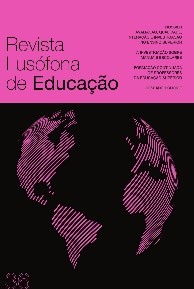 Este dossier temático dá conta dos ‘ventos do sul’ que nos trazem novas experiências no ensino superior, as quais merecem séria reflexão e podem inspirar o desenho de novos modelos de desenvolvimento do conhecimento “pluriversitário” (Santos, 2008). Neste início do século XXI, ventos de mudança sopram e atingem as instituições sociais, políticas, culturais, em todo o mundo, e as universidades, em particular. Pode mesmo dizer-se que elas têm estado no olho do furacão. A universidade tem ocupado uma posição inquestionada na produção do Conhecimento por excelência, sancionando e sancionada pelos estados-nação da modernidade. Nela se formaram as elites nacionais de governantes, se desenharam, refinaram e transmitiram as referências científicas e culturais do passado, presente e futuro e, finalmente, foi na universidade onde a identidade nacional se foi revigorando. Actualmente, a universidade reflete a crise da qual sofre o modelo Estado-Nação com a promoção da internacionalização, da transnacionalização, através da globalização e com a validação do multiculturalismo.
Este dossier temático dá conta dos ‘ventos do sul’ que nos trazem novas experiências no ensino superior, as quais merecem séria reflexão e podem inspirar o desenho de novos modelos de desenvolvimento do conhecimento “pluriversitário” (Santos, 2008). Neste início do século XXI, ventos de mudança sopram e atingem as instituições sociais, políticas, culturais, em todo o mundo, e as universidades, em particular. Pode mesmo dizer-se que elas têm estado no olho do furacão. A universidade tem ocupado uma posição inquestionada na produção do Conhecimento por excelência, sancionando e sancionada pelos estados-nação da modernidade. Nela se formaram as elites nacionais de governantes, se desenharam, refinaram e transmitiram as referências científicas e culturais do passado, presente e futuro e, finalmente, foi na universidade onde a identidade nacional se foi revigorando. Actualmente, a universidade reflete a crise da qual sofre o modelo Estado-Nação com a promoção da internacionalização, da transnacionalização, através da globalização e com a validação do multiculturalismo.
http://revistas.ulusofona.pt/index.php/rleducacao/article/view/5380
GUILHERME, M. & LOURENÇO, F. (2016) Da praxis de-colonial e intercultural no ensino superior indígena: Andante ma non troppo. In M. Guilherme & A. Santamaria (eds.) Ventos do Sul: Modelos e epistemologias interculturais emergentes na educação superior na América Latina Revista Lusófona de Educação, special issue, pp. 179-197.
Convida-se a entrar no andamento orientador da linha filosófica de Vivir Bien ou Buen Vivir e seguir os passos dados desta dança multicultural em movimento “de-colonial”, intracultural e intercultural na educação superior boliviana. Os povos indígenas, marcados profundamente por processos de assimilação e aculturação, têm enfrentado grandes desafios no resgate das suas identidades, culturas e territórios sócio-económicos que, muito embora com as vitórias alcançadas e claramente manifestas nas novas orientações da Nova Constituição Política do Estado Plurinacional da Bolívia (2009), continuam a enfrentar obstáculos para a práxis de novas propostas, nomeadamente e mais concretamente ao que se propõe o artigo, propostas para uma educação que se deve assumir democrática, descolonizadora, intracultural e intercultural. A partir de análises teóricas apresentam-se novas epistemologias, racionalidades e projetos experimentais que procuram inscrever-se nos princípios de uma interculturalidade crítica, efetiva e esclarecida, e que, pelo seus princípios inovadores, exigem uma nova concepção de Universidade que reclama por estruturas renovadas/recriadas para um novo ensino superior.
http://revistas.ulusofona.pt/index.php/rleducacao/article/view/5387
GUILHERME, M. & DIETZ, G. (2016). Da universidade à pluriversidade: Reflexões sobre o presente e o futuro do ensino superior – Entrevista a Boaventura de Sousa Santos. In M. Guilherme & A. Santamaria (eds.) Ventos do Sul: Modelos e epistemologias interculturais emergentes na educação superior na América Latina Revista Lusófona de Educação, special issue, pp. 179-197.
A Europa produziu, durante os últimos séculos, um modelo para a universidade moderna que exportou para as suas colónias e não só. Actualmente, as instituições de educação superior estão a ser pressionadas por duas forças contrárias que, nas suas próprias palavras, podem ser descritas como sendo:
(a) O “conhecimento universitário” que é a base de um modelo hegemónico universalizador que, na nossa opinião, também trai o modelo tradicional da universidade moderna europeia;
(b) O “conhecimento pluriversitário” que promove os saberes ecológicos, plurais e contra-hegemónicos.
Em consequência, gostaríamos de lhe colocar as seguintes perguntas:
- As tendências transformadoras que identifica no seio da universidade para o século XXI apontam para um panorama muito diverso, mas também contraditório. Como vê, e/ou prevê, a coexistência, por um lado, de um impulso para a internacionalização e transnacionalização dos sistemas de educação superior e, por outro lado, o impulso, até certo ponto oposto, para interculturalizar, regionalizar e localizar uma universidade linguística e culturalmente relevante?
…
http://revistas.ulusofona.pt/index.php/rleducacao/article/view/5388
GUILHERME, M. & DIETZ, G. (2017). Introduction. In M. GUILHERME & G. DIETZ, (eds.) Winds of the South: Intercultural university models for the 21st century. Arts and Humanities in Higher Education, Special issue.
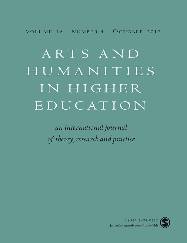 Winds of change are whistling through social, political and cultural institutions, all over the world, and universities in particular. It may well be said that in the 21st century these have been in the eye of the hurricane since they had unquestionably become the locus of knowledge par excellence of modern nation-states and, therefore, where the national elite of rulers was formed, the national scientific and cultural references of the past, present and the future, were devised, refined, delivered and finally where national identity was energized. In sum, in global times, the University is reflecting the crisis of the Nation-State.
Winds of change are whistling through social, political and cultural institutions, all over the world, and universities in particular. It may well be said that in the 21st century these have been in the eye of the hurricane since they had unquestionably become the locus of knowledge par excellence of modern nation-states and, therefore, where the national elite of rulers was formed, the national scientific and cultural references of the past, present and the future, were devised, refined, delivered and finally where national identity was energized. In sum, in global times, the University is reflecting the crisis of the Nation-State.
http://ahh.sagepub.com/cgi/reprint/1474022216680599v1.pdf?ijkey=D30UDZOHgQHOp9P&keytype=finite
GUILHERME, M. & DIETZ, G. (2017). Interview with Boaventura de Sousa Santos. In M. GUILHERME & G. DIETZ, (eds.)Winds of the South: Intercultural university models for the 21st century. Arts and Humanities in Higher Education, Special issue.
In the past centuries, Europe produced a model for the modern university which was exported for its colonies and beyond. Nowadays, higher education institutions are being pressed by two opposing forces which, in your own words, can be described as the following:
1. The “university knowledge” pushing toward a hegemonic universalizing model, which in our view also betrays the traditional model of the modern European university;
2. The “pluriversity knowledge” pushing toward counter-hegemonic, plural and ecological knowledges.
Therefore, we would like to ask you the following questions:
1. The trends you analyze for the transformations ocurring inside the university of the twenty first century show a highly diverse, but also contradictory panorama. How do you view and/or preview the trend towards internationalizing and transnationalizing higher education systems, on the one hand, with regard to the somehow opposite trend towards interculturalizing, regionalizing and/or localizing a linguistically and culturally pertinent university, a “pluriversity”, as you call it, on the other hand?
…
http://ahh.sagepub.com/cgi/reprint/1474022216680598v1.pdf?ijkey=XamCmHt5ks9kGJe&keytype=finite
GUILHERME, M. (2017) Freire’s philosophical contribution for a theory of intercultural ethics: A deductive analysis of his work. Journal of Moral Education, 422-434
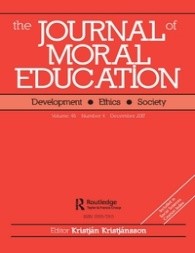 http://www.tandfonline.com/doi/full/10.1080/03057240.2017.1363600
http://www.tandfonline.com/doi/full/10.1080/03057240.2017.1363600
Special Section on Paulo Freire and Moral Education
Published online: 20 Sep 2017
This article claims that Freire’s work offers an important ground for a potential theory of intercultural ethics and, for that purpose, examines his ideas at different levels: (1) the ontological; (2) the ideological; (3) the political; (4) languages and languaging; and (5) cultural identity and diversity. Freire never used the word ‘intercultural’, although it is suggested here that this is due to the fact that terminology related to cultural diversity has changed over time and in his day this term was not yet common currency. Moreover, Freire uses more often the term ‘multiculturalidade’ rather than ‘multiculturalismo’ (multiculturalism) since the former suffix ‘-dad(e)’ has a different meaning which refers to the ontological nature of the condition and is more usual in both Portuguese and Spanish. This article also argues for the relevance of a theory of intercultural ethics in the contemporary world that imprints (inter)cultural flexibility on the current hermeneutics of ethics while preventing excessive abuses on behalf of relativism, dogmatism, essentialism and fundamentalism.
Teodoro, A. & Guilherme, M. (2017) A Educação Superior em tempos de mudança na América Latina e na Europa. Anotações para uma agenda alternative. Laplage em Revista, 3:3, 8-6
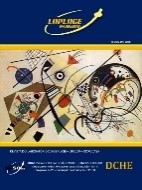 O presente artigo é fruto do trabalho realizado no âmbito da rede RIAIPE, uma rede que integra universidades e centros de I&D da Europa e da América Latina e Caribe. Durante a primeira metade da década de 2010, a Rede desenvolveu um projeto financiado pela Comissão Europeia, Programa ALFA, sobre equidade e inclusão dos grupos sociais mais vulneráveis na Educação Superior na América Latina. Neste artigo apresenta-se o enquadramento político e social realizado sobre das mudanças verificadas nas regiões das equipas de investigação participantes neste projecto nas décadas finais do século XX e na primeira do século XXI. Assume-se que o neoliberalismo falhou completamente como modelo de desenvolvimento económico, mas reconhece-se que, como política de cultura, continua (ainda) em força, fruto de se ter tornado um senso comum que molda a ação dos governos e dos responsáveis pela educação superior.
O presente artigo é fruto do trabalho realizado no âmbito da rede RIAIPE, uma rede que integra universidades e centros de I&D da Europa e da América Latina e Caribe. Durante a primeira metade da década de 2010, a Rede desenvolveu um projeto financiado pela Comissão Europeia, Programa ALFA, sobre equidade e inclusão dos grupos sociais mais vulneráveis na Educação Superior na América Latina. Neste artigo apresenta-se o enquadramento político e social realizado sobre das mudanças verificadas nas regiões das equipas de investigação participantes neste projecto nas décadas finais do século XX e na primeira do século XXI. Assume-se que o neoliberalismo falhou completamente como modelo de desenvolvimento económico, mas reconhece-se que, como política de cultura, continua (ainda) em força, fruto de se ter tornado um senso comum que molda a ação dos governos e dos responsáveis pela educação superior.
Guilherme, M. (2017) ‘Glocal languages’: The ‘globalness’ and the ‘localness’ of world languages. In S. Coffey and U. Wingate (eds.) New Directions for Research in Foreign Language Education. Abingdon: Routledge
The epistemological relations between the geographical North and South have been those of colonial supremacy of the former upon the latter, perpetuating for a long time beyond the end of political colonialism. However, epistemological relations between the North and the South, particularly on the Atlantic Ocean axis, that is, western Europe, the Americas and Africa, have been changing while the geographical South, for a number of reasons and in different ways, has started to talk back. This epistemological dialogue, now to be framed in equity relations, provides an enormous potential that can be extremely fruitful. Therefore, in the text below, the North and the South are perceived as metaphors highlighting the epistemological, cultural and linguistic power relations between and inside the geographical North and South (Castro-Goméz Castro-Gomez and Grosfoguel 2007; Guilherme 2014; Mignolo 2000; Sousa Santos 1999, 2001, 2002, 2014; Souza 2017). …
Guilherme, M. (2017) Visões de futuro em Freire e Dewey: Perspectivas interculturais das matrizes (pós)coloniais das Américas, ECCOS, 44

Este artigo oferece uma análise comparada das visões de futuro que constituem legados fundamentais nas obras de John Dewey e Paulo Freire, tendo em conta os diversos contextos culturais e epistemológicos que constituíram os cenários intelectuais e as bagagens socio-históricas das obras destes autores. As suas visões de futuro são aqui abordadas numa perspetiva intercultural no enquadramento de duas matrizes (pós) coloniais diferentes incorporadas pelas Américas do Norte e do Sul. Este artigo tenta desvendar os substratos históricos, políticos e sociais que alteram a forma e a essência da retórica e da ideologia que presidem a estes dois marcos conceptuais e académicos de referência no campo da educação e da pedagogia no século XX. Finalmente, procura dar ênfase aos valiosos legados teórico-práticos destes dois filósofos educadores para a ideia de futuro nas políticas de educação e nas práticas pedagógicas dos sistemas educativos nas sociedades cosmopolitas do século XXI.
Guilherme, M. (2017) O diálogo intercultural entre Freire & Dewey: O Sul e o Norte nas matrizes (pós)coloniais das Américas, Educação e Sociedade
Este artigo empreende uma análise intercultural dos textos de Paulo Freire e John Dewey, tendo em conta os seus contextos culturais e epistemológicos, no enquadramento de duas matrizes (pós)-coloniais distintas, que constituíram os cenários intelectuais e as bagagens socio-históricas das obras destes autores. Procura assim acrescentar uma perspectiva intercultural e pós-colonial sobre os seus fundamentos filosóficos e epistemológicos aos estudos comparativos das suas obras que se têm concentrado apenas nos seus axiomas em relação à educação e à pedagogia como se constituíssem universais culturais e epistemológicos. Deste modo, tenciona recuperar os seus legados teórico-práticos para as pedagogias interculturais de uma educação para a cidadania nas sociedades cosmopolitas contemporâneas.

